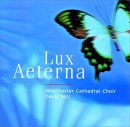|
|
HitsQuick Lux Aeterna
in association with Amazon, Sheet Music Plus, Liquid Audio, eMusic, allwall, Avalon Guitar.
You can help us maintain and grow HitsQuick as the easiest to use, most comprehensive source of music on web:
1) Find your mp3 music downloads, cd's, sheet music, tab books, etc. using
HitsQuick. We strive to give the you fastest path to the products you seek. A small percentage of those sales allows us to minimize distracting, irrelevant advertisements.
2) Add links to your information and fan web sites to the Open Directory Catalog so we can include them in HitsQuick
3) Try all the subscription music download services such as Emusic. The music industry is struggling to find a workable scheme for legal downloads. Send the companies feedback whether you decide to stay subscribed or not.
[Terms and Policies]
|
|
